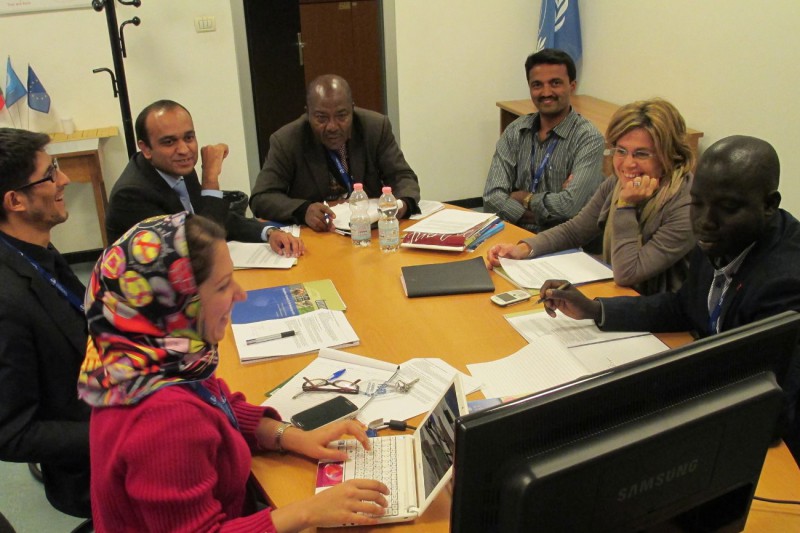2022
AAAS-TWAS Summer Course on Science Diplomacy
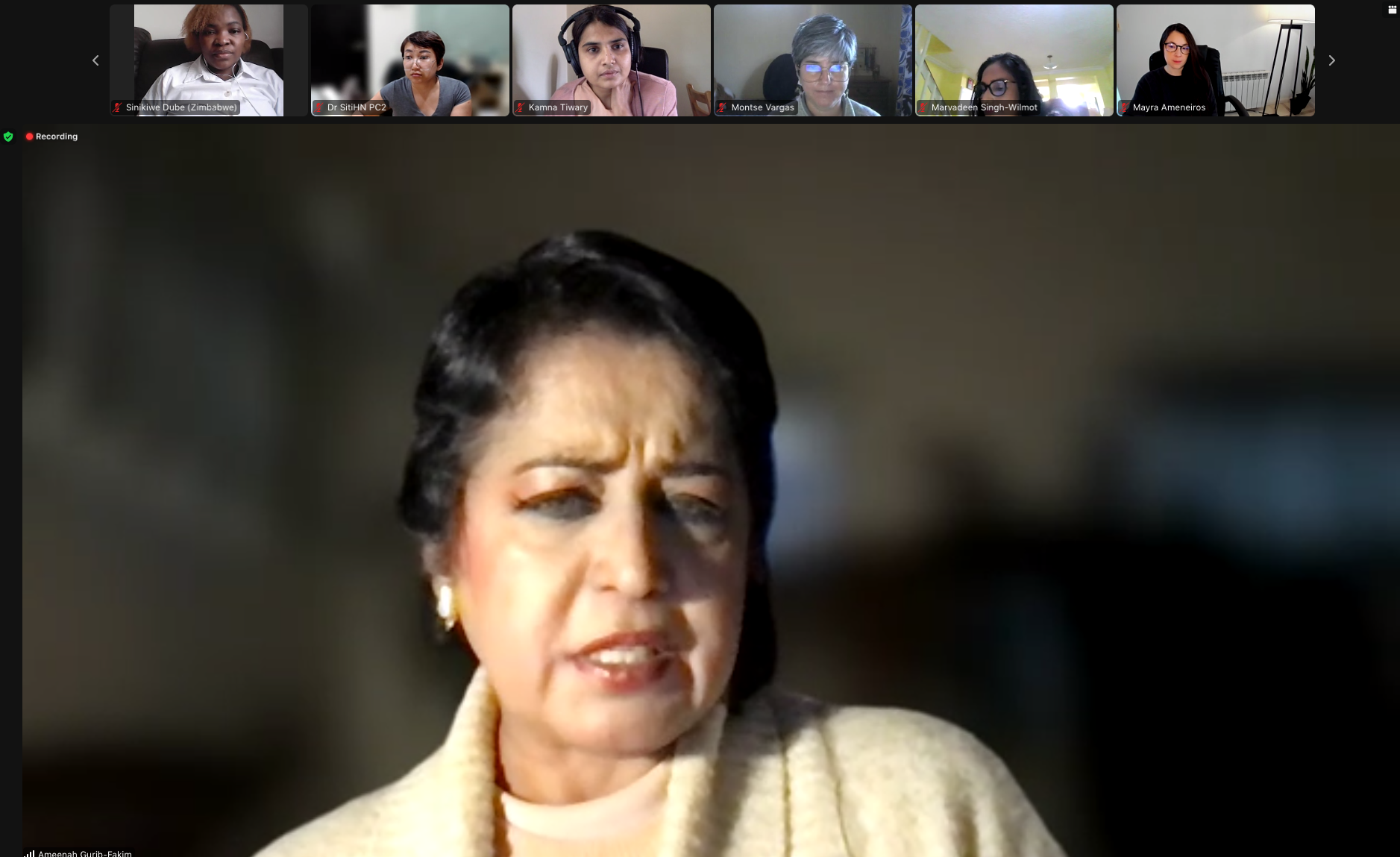 The course, this year in its ninth edition, tested the participant pairs system for the second time in a row. In addition, after setting their own avatar, each participant had to move across a virtual platform called "gather.town", going from one room to another to participate in restricted group activities and in more general presentations, building collaborative relationships that may even last beyond the days of the workshop. They also took part in a simulated science diplomacy challenge. Ameenah Gurib-Fakim, the former president of Mauritius, laid out the challenges ahead for scientists and diplomats in Africa and the rest of the world in a keynote speech.
The course, this year in its ninth edition, tested the participant pairs system for the second time in a row. In addition, after setting their own avatar, each participant had to move across a virtual platform called "gather.town", going from one room to another to participate in restricted group activities and in more general presentations, building collaborative relationships that may even last beyond the days of the workshop. They also took part in a simulated science diplomacy challenge. Ameenah Gurib-Fakim, the former president of Mauritius, laid out the challenges ahead for scientists and diplomats in Africa and the rest of the world in a keynote speech.
2021
TWAS-LACREP Regional Workshop on Science Diplomacy
TWAS, the TWAS Latin America and the Caribbean Regional Partner (TWAS-LACREP) hosted at the Brazilian Academy of Sciences (BAS) in collaboration with the São Paulo Innovation and Science Diplomacy School (InnSciD SP) are seeking candidates to participate in the regional workshop on science diplomacy for Latin America and the Caribbean region. For information on the event and the application process please see here.
Deadline to apply: 31 May 2021.
AAAS-TWAS Summer Course on Science Diplomacy
The seventh annual summer course on science diplomacy was held online from 30 August to 3 September 2021. To strengthen the connection between scientists and governmental officials, policymakers and diplomats, attended the course and formed ‘participant pairs’. Both individuals in each pair lived and/or worked in the same country.
2020
AAAS-TWAS Summer Course on Science Diplomacy
The sixth science diplomacy course sponsored by the American Association for the Advancement of Science (AAAS) and TWAS - originally to take place on 10-13 July - was held in virtual format on 21-24 September due to the covid-19 pandemic. The digitalisation of the event enabled attendance of over 75 participants from 45 countries. An article on the course is available here.
TWAS-ASM Regional Workshop on Science Diplomacy
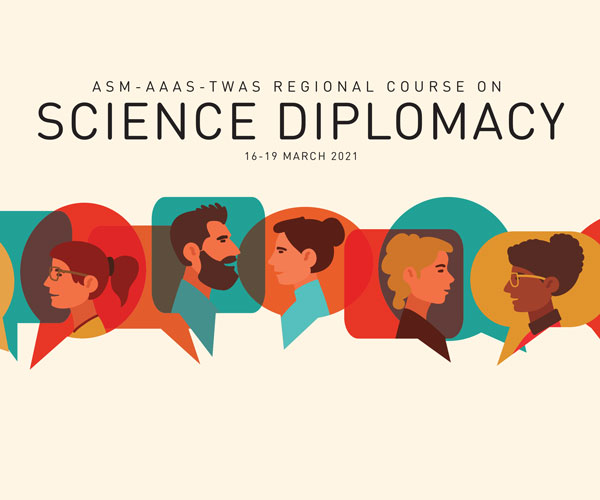 The ASM-AAAS-TWAS Regional Course on Science Diplomacy was held online by the Academy of Sciences of Malaysia (ASM) on 16-19 March 2021. The workshop was originally planned to take place in-person in Kuala Lumpur in July 2020 but due to the COVID-19 pandemic, it was postponed and turned into a digital event. It was attended by 56 participants from 27 countries, mostly from Science & Technology Lagging Countries (STLCs) and Least Developed Countries (LDCs) from East and South-East Asia and the Pacific region. Full coverage of the workshop is available here.
The ASM-AAAS-TWAS Regional Course on Science Diplomacy was held online by the Academy of Sciences of Malaysia (ASM) on 16-19 March 2021. The workshop was originally planned to take place in-person in Kuala Lumpur in July 2020 but due to the COVID-19 pandemic, it was postponed and turned into a digital event. It was attended by 56 participants from 27 countries, mostly from Science & Technology Lagging Countries (STLCs) and Least Developed Countries (LDCs) from East and South-East Asia and the Pacific region. Full coverage of the workshop is available here.
2019
TWAS has joined the BRIDGES network (Big Research Infrastructures for Diplomacy and Global Engagement through Science).
BRIDGES is an informal network of people who deal with science diplomacy and international relations in international research organizations.
For more details, see: https://www.iiasa.ac.at/web/home/research/sciencepolicy/bridges/bridges.html
The network's second meeting was held at IIASA, Austria, in November: https://www.iiasa.ac.at/web/home/research/sciencepolicy/bridges/2/191127-BRIDGES.html
S4D4C Science Diplomacy Workshops
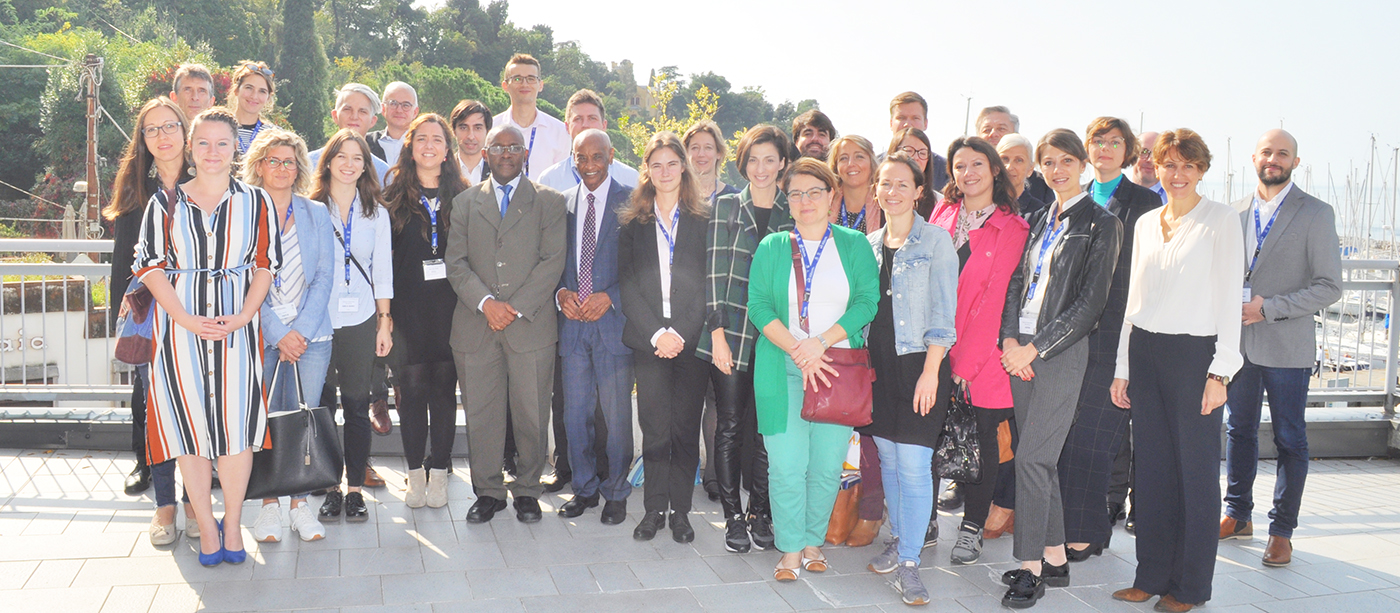 On 21-23 October, TWAS hosted the first S4D4C Science Diplomacy Workshop in Trieste, Italy. S4D4C – which stands for Using Science for/in Diplomacy for Addressing Societal Challenges – works to support European science diplomacy, European Union foreign policy goals and especially the development of solutions for global challenges. TWAS is a partner in the S4D4C consortium. The Trieste workshop drew over 30 speakers and participants from over a dozen countries – mostly from EU Member States – but also from Russia, Algeria and Ukraine. They are designed for scientists, diplomats, policymakers and other experts in fields where science, technology and foreign policy intersect.A second workshop will take place in Vienna, Austria, from 25-27 November.
On 21-23 October, TWAS hosted the first S4D4C Science Diplomacy Workshop in Trieste, Italy. S4D4C – which stands for Using Science for/in Diplomacy for Addressing Societal Challenges – works to support European science diplomacy, European Union foreign policy goals and especially the development of solutions for global challenges. TWAS is a partner in the S4D4C consortium. The Trieste workshop drew over 30 speakers and participants from over a dozen countries – mostly from EU Member States – but also from Russia, Algeria and Ukraine. They are designed for scientists, diplomats, policymakers and other experts in fields where science, technology and foreign policy intersect.A second workshop will take place in Vienna, Austria, from 25-27 November.
Workshop on responsible research practices in chemistry and biology
A select group of early-career scientists from around the world convened in Trieste, Italy, from 9-13 September for a high-level workshop exploring the dual-use technologies and responsible research practices in chemical and biological sciences. The workshop was managed by the Organisation for the Prohibition of Chemical Weapons (OPCW), winner of the 2013 Nobel Peace Prize; the InterAcademy Partnership (IAP), and TWAS. The week-long workshop featured lectures as well as an also interactive workshop on the multiple uses of chemistry and presentations on science diplomacy by several of the participants.
AAAS-TWAS Train the Trainers Course on Science Diplomacy
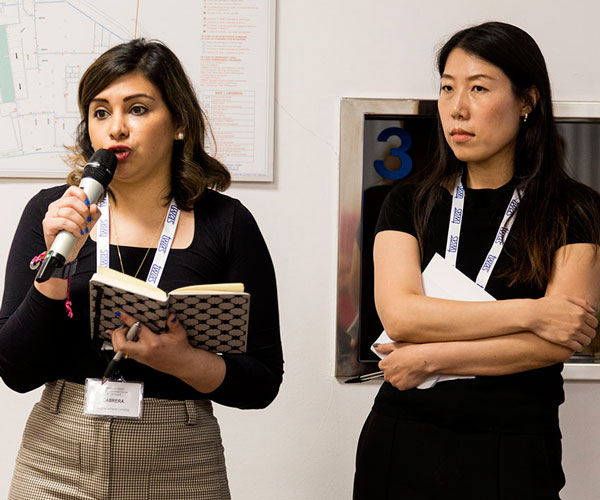 On 26-28 August, the AAAS-TWAS Science Diplomacy Programme held its first "Train the Trainers" course, designed to focus on training future science diplomacy ambassadors through hands-on activities. The goal was to offer them strategies and tools so that they could return to their home countries and institutions and, through courses and activities tailored for their home institutions and countries, forge a future class of science diplomats. Thirty participants (52% women) were selected from hundreds of applications demonstrating the growing demand for science diplomacy training around the world. They were from 22 countries in Latin America, Asia, Middle East, Europe and Sub-Saharan Africa.
On 26-28 August, the AAAS-TWAS Science Diplomacy Programme held its first "Train the Trainers" course, designed to focus on training future science diplomacy ambassadors through hands-on activities. The goal was to offer them strategies and tools so that they could return to their home countries and institutions and, through courses and activities tailored for their home institutions and countries, forge a future class of science diplomats. Thirty participants (52% women) were selected from hundreds of applications demonstrating the growing demand for science diplomacy training around the world. They were from 22 countries in Latin America, Asia, Middle East, Europe and Sub-Saharan Africa.
Paolo Budinich Science Diplomacy Lecture by Lassina Zerbo
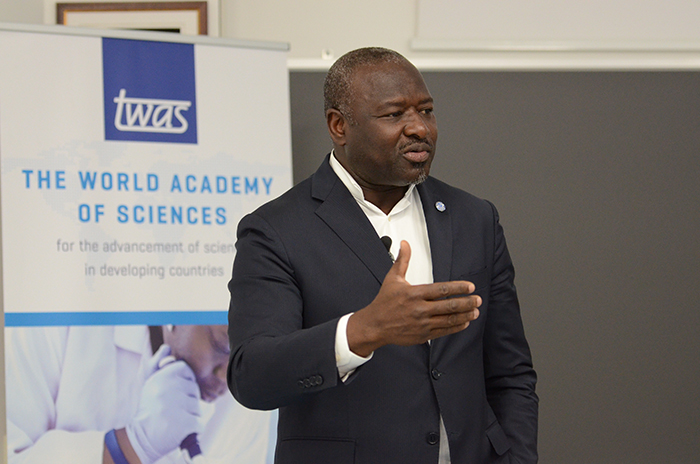 On 14 June, TWAS Hosted a Paolo Budinich Science Diplomacy Lecture by Lassina Zerbo, the executive secretary of the Comprehensive Nuclear-Test-Ban Treaty Organization (CTBTO). He explained the purpose behind the The Comprehensive Nuclear-Test-Ban Treaty, which would prohibit all nuclear explosions worldwide, and while not legally binding, has nonetheless had a powerful impact through its system that monitors the globe for evidence of nuclear explosions. He also participated in a filmmed interview with TWAS.
On 14 June, TWAS Hosted a Paolo Budinich Science Diplomacy Lecture by Lassina Zerbo, the executive secretary of the Comprehensive Nuclear-Test-Ban Treaty Organization (CTBTO). He explained the purpose behind the The Comprehensive Nuclear-Test-Ban Treaty, which would prohibit all nuclear explosions worldwide, and while not legally binding, has nonetheless had a powerful impact through its system that monitors the globe for evidence of nuclear explosions. He also participated in a filmmed interview with TWAS.
2018
5th AAAS-TWAS Summer Course on Science Diplomacy
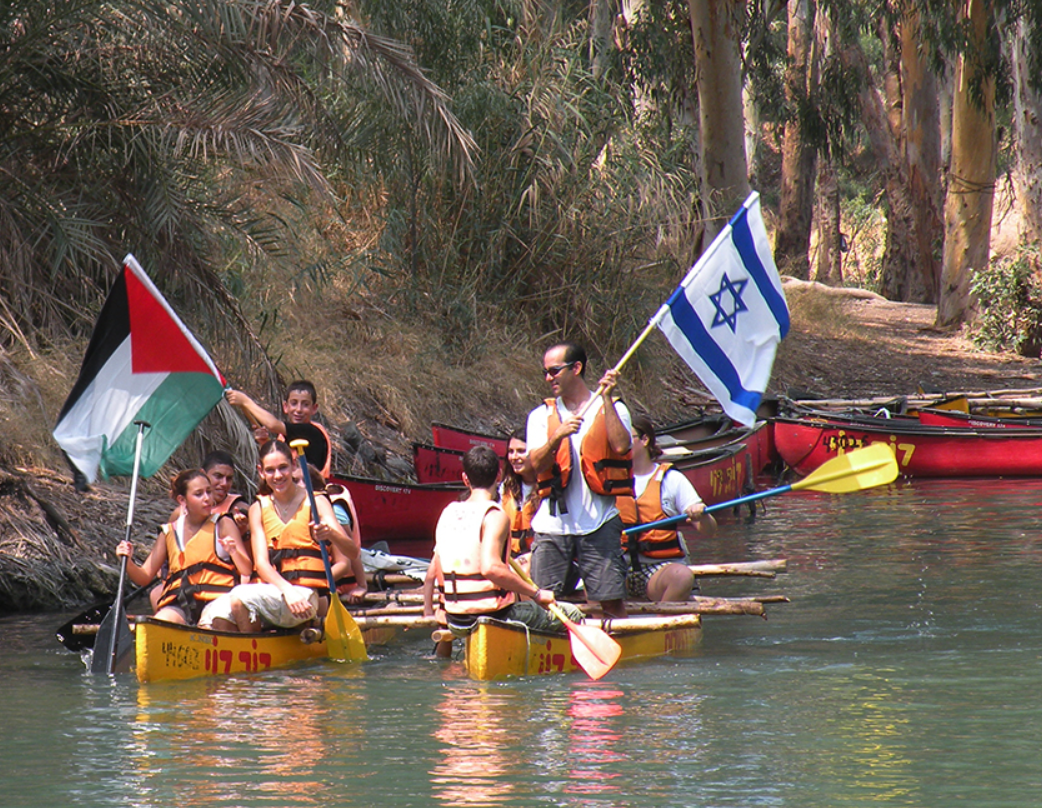 The fifth science diplomacy course sponsored by American Association for the Advancement of Science (AAAS) and TWAS in Trieste, Italy was held 20-24 August and convened over 40 scientists and government officials from over 20 countries including Bangladesh, Colombia, Malaysia, Sudan and Uganda. Highlights included talks by volcanologist James Hammond, who described how he and his colleagues in the UK found a way to collaborate with the nation’s scientists in the Democratic People's Republic of Korea, and a talk on how water science and policy helps cool tensions between Israelis and Palestinians delivered by Giulia Giordano, the international affairs manager for EcoPeace. During the week-long course, participants also took part in simulations designed to help understand the dynamic relationships between science and diplomacy.
The fifth science diplomacy course sponsored by American Association for the Advancement of Science (AAAS) and TWAS in Trieste, Italy was held 20-24 August and convened over 40 scientists and government officials from over 20 countries including Bangladesh, Colombia, Malaysia, Sudan and Uganda. Highlights included talks by volcanologist James Hammond, who described how he and his colleagues in the UK found a way to collaborate with the nation’s scientists in the Democratic People's Republic of Korea, and a talk on how water science and policy helps cool tensions between Israelis and Palestinians delivered by Giulia Giordano, the international affairs manager for EcoPeace. During the week-long course, participants also took part in simulations designed to help understand the dynamic relationships between science and diplomacy.
Estimating the number of displaced scientists
A TWAS Newsletter special report on scientists displaced by war and conflict included an unprecedented in-depth analysis on the number of such researchers globally. That number may not be clear-cut, but figures from organizations dedicated to helping scientists forced to flee their home contries provide enough information for a broad estimate of the scope of the problem.
ASSAf-TWAS-AAAS Regional Workshop on Scicence Diplomacy
A workshop on science diplomacy deliberated on the role of science to better align Africa with Vision 2063 and the Science, Technology and Innovation Strategy for Africa (STISA) 2024. It was co-hosted by The World Academy of Sciences (TWAS), the American Association for the Advancement of Science (AAAS), and the Academy of Science of South Africa (ASSAf) 21 to 25 May 2018 near Pretoria. The workshop was designed for young scientists (below the age of 40) living and working in sub-Saharan Africa and whose research and wider engagement has brought them into the international policymaking arena, policymakers and diplomats interested in some of the central science-based themes that might influence their work, and representatives from non-governmental organisations (NGOs) and other sectors working at the science-diplomacy interface. Guest speakers included Dr Lassina Zerbo from the Comprehensive Nuclear-Test-Ban Treaty Organisation who last year won the AAAS Science Diplomacy Award; Mr Paul Bewsher from the Peace Parks Foundation; Dr Youba Sokona, Vice-Chair, Intergovernmental Panel on Climate Change and Dr Adrian Tiplady, Head, Strategy and Business Processes, Square Kilometre Array. Thirty delegates from 16 countries in sub-Saharan Africa attended: from Benin, Cameroon, Chad, Ethiopia, Ghana, Kenya, Malawi, Mauritius, Mozambique, Namibia, Nigeria, Senegal, South Africa, Togo, Uganda and Zimbabwe.
2017
IAP-OPCW workshop on chemistry and ethics
The TWAS science diplomacy programme and the InterAcademy Partnership (IAP) collaborated to host the workshop "Policy and Diplomacy for Scientists: Introduction to responsible research practices in chemical and biochemical sciences" in Trieste, Italy. The event explored dilemmas and challenges in doing research responsibly, and bridging the science-policy divide. drew over 30 researchers from across the developed and developing world to discuss the complicated and sometimes daunting ways that chemistry and ethical concerns can intermingle.
Southern Africa: the promise of science diplomacy
The border-jumping Ebola outbreak and development of the Square Kilometre Array radio telescope demonstrate how science diplomacy is essential for Africa's future. So a workshop in Namibia, co-organised by AAAS and TWAS, explored science diplomact's challenges, and its rich potential.
4th AAAS-TWAS Summer Course on Science Diplomacy
The 4th summer course in science diplomacy course organised by the American Association for the Advancement of Science (AAAS) and TWAS in Trieste, Italy was held 21-25 August and it convened 45 scientists and government officials from 18 countries including Egypt, Indonesia, Italy, Nepal and Sri Lanka. During the week-long course, participants probed the complex workings and potential value of science diplomacy for addressing global challenges and improving relations among nations. The highight of the course was a keynote presentation by Greg Stone, chief scientist and executive vice president at Conservation International as well as science adviser to the government of Kiribati, and Christine Greene, Kiribati's honorary counsel to the United States. They explored how science diplomacy could help to bring a consensus that the world has an interest – and an obligation – to help protect the remote and far-flung island nation from the effects of climate change.
In a filmed interview, Greene says the atoll nation's future must be science: conservation, resilient ocean ecosystems, floating islands – and even a new concept: an "aqueous nation".
Workshop - Refugee Scientists: Transnational Resources
An untold number of researchers, engineers and doctors are among the millions displaced by recent conflicts in the Middle East and North Africa. Before they became refugees, they were essential to strong communities in nations such as Syria, Yemen, Libya, Afghanistan and Iraq. Now, a workshop co-organised by TWAS, along with its partners at Istituto Nazionale di Oceanografia e di Geofisica Sperimentale (OGS) and Euro-Mediterranean University (EMUNI), explores the lives of refugee scientists – and the expertise they bring to their new countries.
The Organisation for the Prohibition of Chemical Weapons (OPCW) will organise, in collaboration with the World Academy of Sciences (TWAS) and the InterAcademy Partnership (IAP), the second edition of a workshop on “Policy and Diplomacy for Scientists: Introduction to Responsible Research Practices in Chemical and Biochemical Sciences”. The workshop will be held at TWAS headquarters in Trieste, Italy, from 12 to 15 September 2017.
The objective of the workshop is to raise awareness among young scientists on the policy and diplomacy aspects that are related to the use of chemicals in various scientific disciplines, including chemistry, biochemistry, biotechnology, and other related fields. Download call and application form.
2016
AAAS-TWAS Summer Course on Science Diplomacy
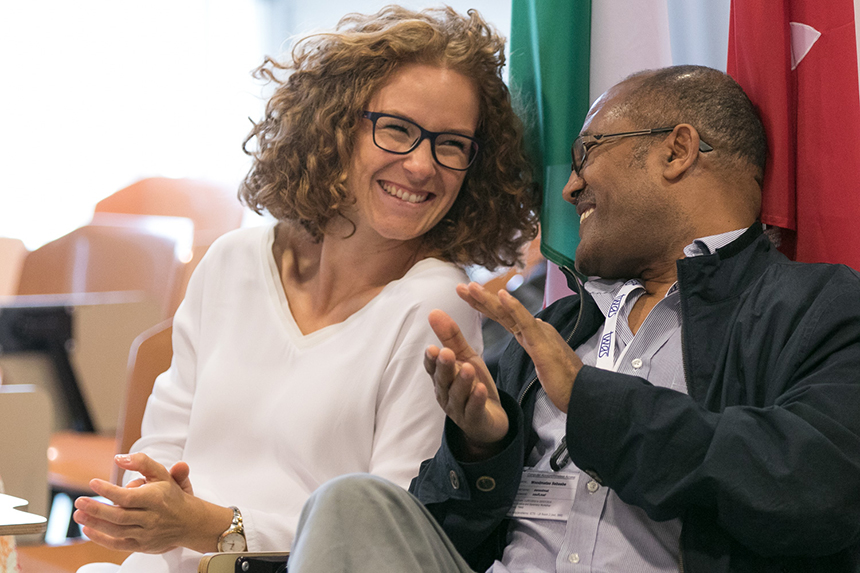 Held from 11 to 16 July 2016 in Trieste, Italy, the annual science diplomacy course featured a complex simulation of a high-stakes diplomatic negotiation, challenging participants to reconcile one fictional nation's interest in economic growth with another's desire for environmental conservation. It brought together about 30 participants from 22 nations, and included a high-profile list of speakers, including Princess Sumaya bint El Hassan, the president of the Royal Scientific Society of Jordan, and Vaughan Turekian, science and technology adviser to the U.S. Secretary of State, and science communicator Liz Neeley, the executive director at The Story Collider.
Held from 11 to 16 July 2016 in Trieste, Italy, the annual science diplomacy course featured a complex simulation of a high-stakes diplomatic negotiation, challenging participants to reconcile one fictional nation's interest in economic growth with another's desire for environmental conservation. It brought together about 30 participants from 22 nations, and included a high-profile list of speakers, including Princess Sumaya bint El Hassan, the president of the Royal Scientific Society of Jordan, and Vaughan Turekian, science and technology adviser to the U.S. Secretary of State, and science communicator Liz Neeley, the executive director at The Story Collider.
TWAS monograph on the International Centre for Integrated Mountain Development (ICIMOD)
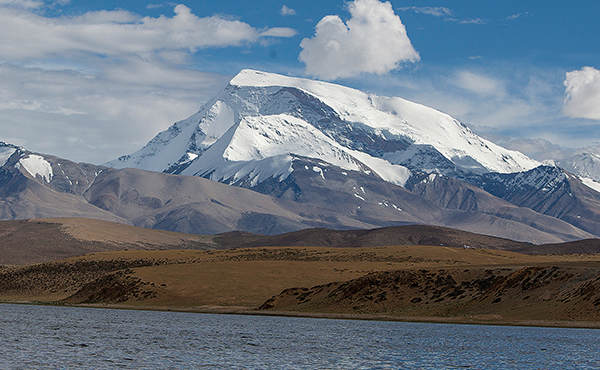 The International Centre for Integrated Mountain Development, or ICIMOD, is the combined creation of eight countries in the Hindu Kush Himalayas – Afghanistan, Bangladesh, Bhutan, China, India, Myanmar, Nepal and Pakistan. With more than 300 employees, it represents the power of international collaboration and science diplomacy, building extensive and detailed knowledge of the Himalayas and the rivers that flow thousands of kilometers from high-mountain glaciers to the Indian and Pacific Ocean. ICIMOD's far-reaching impact is captured in a new monograph – the latest in the TWAS Excellence in Science series.
The International Centre for Integrated Mountain Development, or ICIMOD, is the combined creation of eight countries in the Hindu Kush Himalayas – Afghanistan, Bangladesh, Bhutan, China, India, Myanmar, Nepal and Pakistan. With more than 300 employees, it represents the power of international collaboration and science diplomacy, building extensive and detailed knowledge of the Himalayas and the rivers that flow thousands of kilometers from high-mountain glaciers to the Indian and Pacific Ocean. ICIMOD's far-reaching impact is captured in a new monograph – the latest in the TWAS Excellence in Science series.
2015
TWAS Science Diplomacy Workshop on Sustainable Water Management
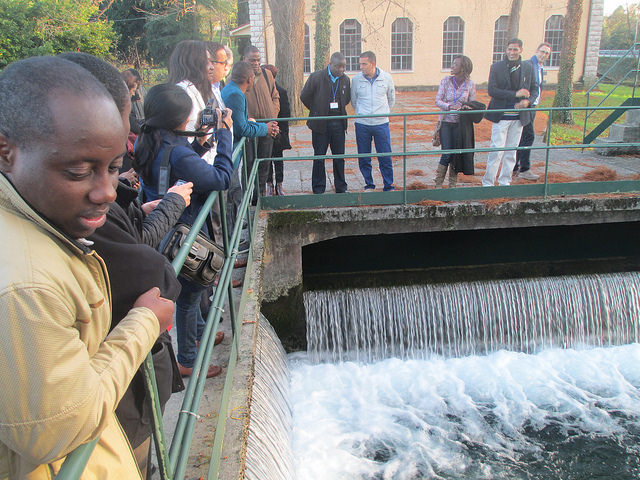 The 4-5-day course took place in Trieste, Italy, from 30 November to 4 December 2015. It exposed participants to some key contemporary international policy issues relating to science diplomacy and sustainable water management, including the use of shared rivers and underground aquifers, cross-border pollution issues, safe drinking water and more.
The 4-5-day course took place in Trieste, Italy, from 30 November to 4 December 2015. It exposed participants to some key contemporary international policy issues relating to science diplomacy and sustainable water management, including the use of shared rivers and underground aquifers, cross-border pollution issues, safe drinking water and more.
AAAS-TWAS Summer Course on Science Diplomacy
Scientists and policy experts from 30 nations met in Trieste to explore how science and diplomacy can solve issues that press all nations, such as disease and water use. Working in groups, participants developed their own science diplomacy projects. There were also several panels by science diplomacy experts, such as one that discussed how to use science diplomacy to influence policy.
Paolo Budinich Science Diplomacy Lecture by Sir Peter Gluckman
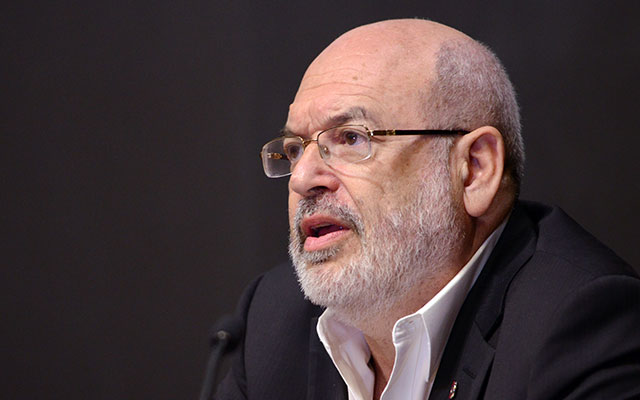 Sir Peter Gluckman is chief science adviser to the Prime Minister of New Zealand and head of the International Network for Science Advice to Governments. In his lecture, titled 'Science Diplomacy: Opportunities and Challenges as seen through a Small-Country Lens', he discussed how New Zealand achieving global influence at the interface of S&T and diplomacy – and other small nations can do the same. You can find a video of the lecture here.
Sir Peter Gluckman is chief science adviser to the Prime Minister of New Zealand and head of the International Network for Science Advice to Governments. In his lecture, titled 'Science Diplomacy: Opportunities and Challenges as seen through a Small-Country Lens', he discussed how New Zealand achieving global influence at the interface of S&T and diplomacy – and other small nations can do the same. You can find a video of the lecture here.
2014
Paolo Budinich Science Diplomacy Lecture by Manju Sharma
Manju Sharma, former Secretary of the Department of Biotechnology within the Indian Ministry of Science and Technology, discussed 'Biotechnology development and applications for developing countries'. Watch the video.
Climate change and high-altitude agriculture workshop
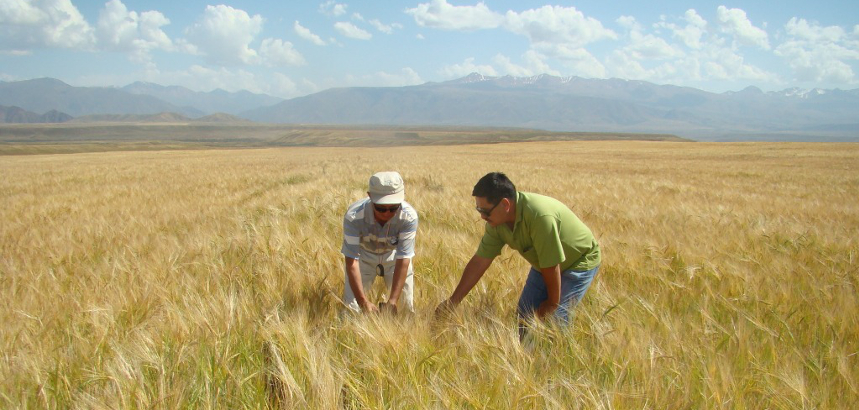 This AAAS-TWAS workshop took place on 8-12 December 2014 in Trieste, Italy. Experts from Kazakhstan, Kyrgystan, Tajikistan, Turkmenistan, Uzbekistan, India and the United States discussed how climate change will affect agriculture, water and health in south and central Asia. They also explored how to monitor and measure the impacts, how biotechnology and other scientific fields can aid in lessening the impacts, and what policies and mechanisms can help.
This AAAS-TWAS workshop took place on 8-12 December 2014 in Trieste, Italy. Experts from Kazakhstan, Kyrgystan, Tajikistan, Turkmenistan, Uzbekistan, India and the United States discussed how climate change will affect agriculture, water and health in south and central Asia. They also explored how to monitor and measure the impacts, how biotechnology and other scientific fields can aid in lessening the impacts, and what policies and mechanisms can help.
TWAS Regional Prize for Science Diplomacy
The USD3,000 prize, offered every four years starting in 2014, recognizes teams who have collaborated on a transboundary research project. The aim is to begin to bring principles and applications of science diplomacy to the attention of both the research and diplomatic communities in developing countries. Winners are nominated for the AAAS Science Diplomacy Prize.
Sustainable fisheries workshop
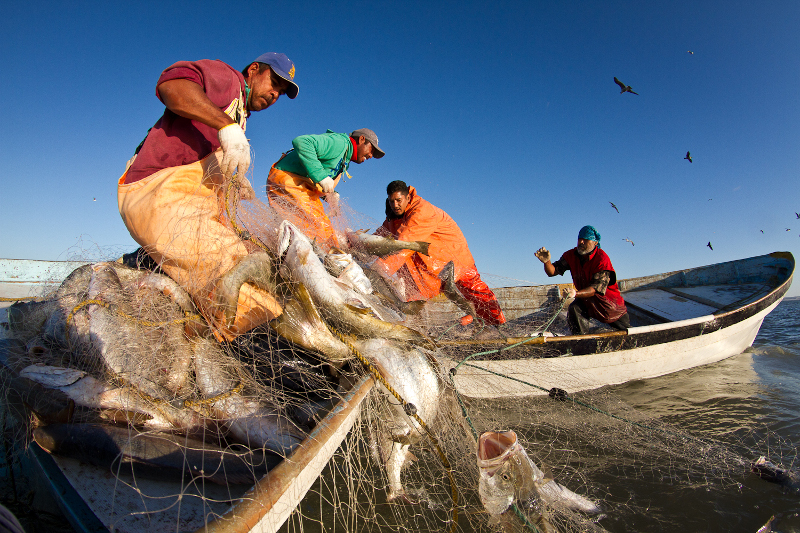 TWAS and the US-based Environmental Defense Fund collaborated to host a workshop called "Tools & Techniques for Sustainable Fisheries Management in Latin America". The event, designed to help build effective fisheries management, was in Merida, Mexico from 27 September to 2 October 2014. Participants included young scientists, government officials and representatives of fishing communities or non-governmental organizatons from Latin American countries (see Helping small fisheries prosper).
TWAS and the US-based Environmental Defense Fund collaborated to host a workshop called "Tools & Techniques for Sustainable Fisheries Management in Latin America". The event, designed to help build effective fisheries management, was in Merida, Mexico from 27 September to 2 October 2014. Participants included young scientists, government officials and representatives of fishing communities or non-governmental organizatons from Latin American countries (see Helping small fisheries prosper).
How can nations join to protect the world's oceans or collaborate on pioneering megaprojects? During a week at TWAS, representatives of 32 nations learned that science diplomacy may be the key.
2nd MENA Educational Institute for Responsible Science
Forty scientists from five Middle Eastern and North African countries convened in Trieste to explore scientific responsibility with a focus on bioscience. The researchers explored the complex social and ethical questions that can arise in modern biological research.
Paolo Budinich Science Diplomacy Lecture by Paul van Gardingen
Paul van Gardingen, director of the Ecosystem Services for Poverty Alleviation Programme at the University of Edinburgh, UK discussed how science diplomacy can lead to greater well-being worldwide "From 18th Century Scottish Enlightenment to 21st Century Sustainable Development". Watch the video.
2013
A week-long workshop brought energy-sector scientists and policymakers from 16 different countries to TWAS headquarters in Trieste, Italy, to explore the relationship between science, policy and diplomacy.
Smaller nations can use science diplomacy to step onto the global stage and contribute to international issues, by providing policymakers with the right scientific advice on urgent matters, says Vaughan Turekian, director of the AAAS Center for Science Diplomacy.
Ivo Šlaus, a physicist and president of the World Academy of Art & Science (WAAS), asked how scientists in the world of academia can create a more peaceful, prosperous and equal world, arguing that it's essential that academics of all stripes engage with the political realities of the world. Watch the video.
A roundtable called "Science and Diplomacy: Central Europe and Southern Mediterranean" brought together nearly 50 science and policy leaders from 12 nations. Discussions ranged from challenges confronting women in science and engineering to the role of science academies in building research.
2012
Mary O'Kane, Chief Scientist and Engineer of New South Wales and executive chairman of her own company, Mary O'Kane & Associates, made a strong case that governments should invest in high-level, high-quality research if they wish to increase economic productivity.
***
For an engaging review of ideas and issues, read Science & Diplomacy, a journal published quarterly by AAAS, the American Association for the Advancement of Science.



